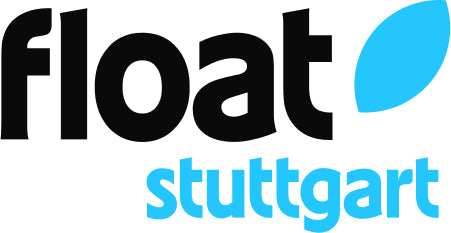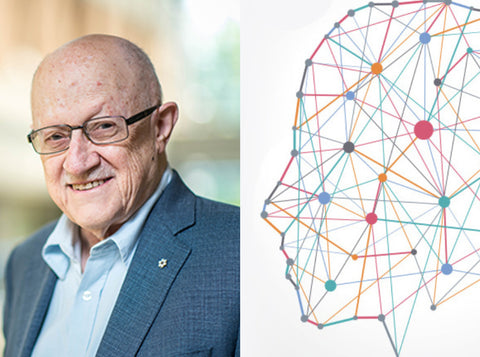Introduction
Our modern world presents us with a multitude of challenges. One of the biggest: the ability to concentrate. Every second we are confronted with news reports, sudden stock market fluctuations, impressions on social networks and the next best advertising offer.
Every single piece of information is a complex signal that our brain has to process, filter and prioritize. The problem: the brain's mental resources are limited. Once we have used up the energy of our attention filter over the course of the day, the tank is empty.
The average American consumed approximately 34 gigabytes of data and information every day in 2008.
University of California–San Diego
Going through this neural fatigue and running on empty reserves has become the norm in modern society. However, leaving little opportunity for rest and recharge has a significant impact on our cognitive abilities and ability to concentrate. Instead of really moving forward, We jump from one task to the next, get lost in unproductive activity and end up feeling exhausted.
In a world of constant distraction, it is therefore all the more important to create spaces in which we can consciously concentrate and specifically recharge our mental resources.
The Value of Good Concentration for Health and Career
Now, of course, you can question how important it really is to concentrate. After all, multitasking has its advantages in everyday life between family, work and leisure time and often we cannot do without it. There's a call from kindergarten while we're on our way to the fridge in our home office and our cell phone repeatedly reminds us of the WhatsApp and news ticker messages we missed.
However, what happens biologically when we fragment our attention is explained by Daniel J. Levitin, cognitive scientist and author of "The Organized Mind: Thinking Straight in the Age of Information Overload":
"Decision-making is incredibly labor-intensive for the brain. Neurons are living cells that require oxygenated glucose to function. We use up that glucose when we ask the brain's attention systems to quickly switch from one thing to the next."
In other words, every distraction, no matter how small, consumes part of the energy available in our mental system. If we are in a permanent state of neuronal fatigue, this is a strain on our body.
This is one of the main reasons why the last decade has seen The social perception of stress and exhaustion has continuously increased. More than 71% of 30 to 40 year olds in Germany say that they regularly feel exhausted. And this despite the fact that the total number of hours worked is declining.
The importance of being able to concentrate and free yourself from the constant flood of information not only has health benefits, but also has considerable value in the job market. A look at the 10 most important skills in 2025 from the World Economic Forum's labor report shows how important the ability to concentrate is for dealing with future tasks:

Although some words are difficult to grasp, it quickly becomes apparent that all of these skills require a high level of concentration.
Here are two examples:
Point 2 addresses the relevance of active and continuous learning. What was current and constant yesterday can be a thing of the past tomorrow. In order to stay on the ball, we have to learn relevant things and this happens in the brain in the following order:
Filter & Select (Spotlight) --> Process (Bottleneck) --> Save & Retrieve (Library)
Our attention filter sorts the daily flood of information and decides which information is important enough to be stored long-term. The problem: the brain can process and store less than 1% of the information it perceives daily.
If we overload our mental capacity by spreading our concentration, we not only lose the ability to filter information, but at the same time we also reduce our already low processing power by one percent. The consequence: we are denying ourselves the opportunity to learn in the long term.
Another example is point 10. It addresses, among other things, the ability to argue, i.e. the ability to participate in a discourse and to express a point, an idea or a problem logically.
It's highly likely that each of us can remember a situation in which we wanted to express a good idea in a business meeting or with a group of friends - and boom! We lose the thread. We lose concentration and forget what we actually wanted to say. To verbalize a thought rigorously always requires that I concentrate in that moment and am able to focus on what is important.
Floating – a reliable retreat for the 21st century
As described at the beginning, it is therefore essential to create spaces in which we can consciously concentrate and specifically recharge our mental resources.
Imagine for a moment that you are floating weightlessly in soothing salt water, far away from all external stimuli. No distractions. Nothing.
In this state of sensory deprivation, your mind slows down its processing power and comes to rest completely. A unique state. We no longer have to process anything from the outside and so have a lasting chance to replenish our mental resources. And this is exactly why people always feel fresh and rested after floating.
The special thing: While floating, the necessary space is created to allow us to concentrate in a very targeted way. For example, top athletes go floating to visualize movement sequences without external distractions. They train sequences that must be available in decisive situations, as if by themselves in the "flow". For example, you often see alpine skiers, for example, going through the curves of the course in front of their own eyes shortly before the start and simulating the movement. A preparation program that can be practiced in the float pool.
The Navy Seals, a special unit of the US Marines, use floating to learn the basics of a language within a few weeks. If the attention filter only has to concentrate on a small amount of information, in this case on learning vocabulary in a foreign language, the brain can process the information more quickly and anchor it in the long term.
Conclusion
In this blog post, we talked about how modern life and the flood of information that comes with it affect our ability to concentrate. We explained how the brain's limited mental resources have to fight against a seemingly endless flood of information and how important good concentration is for your health and your job.
In an increasingly fast-paced information age , it is therefore essential to regularly replenish our mental resources and to have a place to retreat to where we can consciously concentrate. Floating provides such an environment that frees the brain from processing external stimuli, replenishes mental resources and provides a space to concentrate in a targeted manner.
And the best thing is that the floating environment is completely natural. It is often much closer to people than the requirements of the information age in which we find ourselves.



